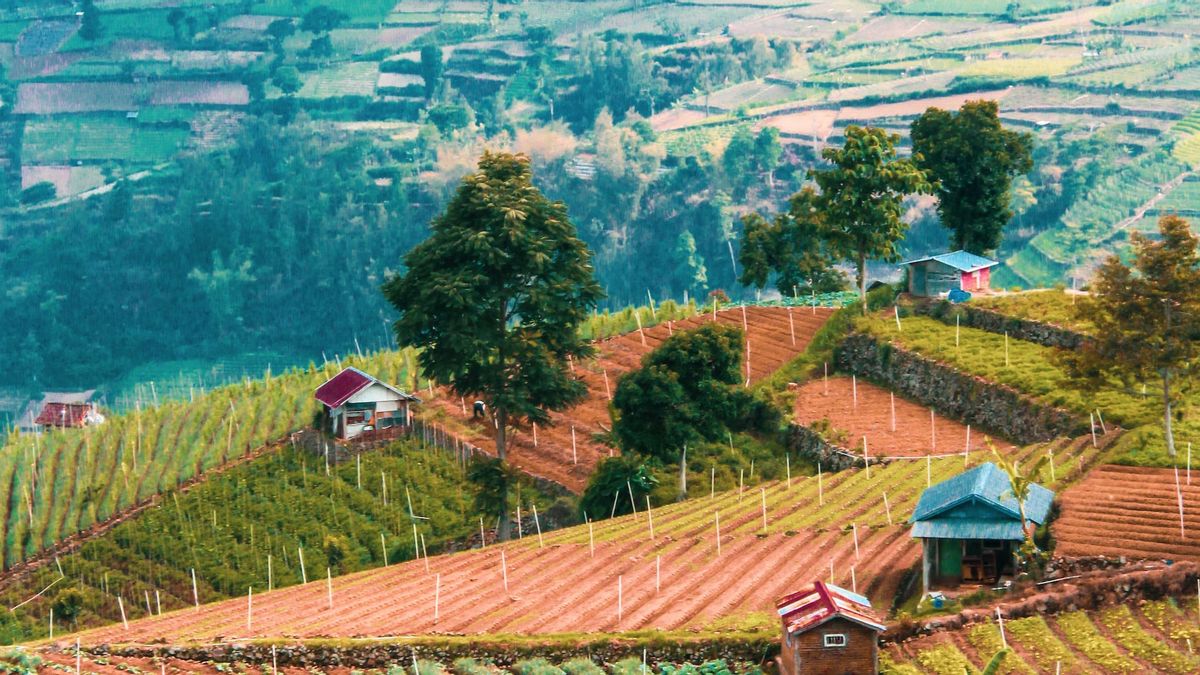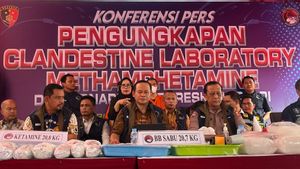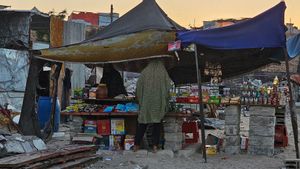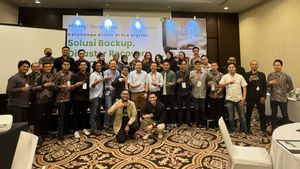BOJONEGORO - The continuous conversion of agricultural land has received the spotlight of the Chairman of the DPD RI AA LaNyalla Mahmud Mattalitti. This is because the conversion of agricultural land is still the main cause of the decline in rice production in Indonesia.
Therefore, LaNyalla asked the government to implement it correctly and in total Law Number 5 of 1960 concerning the Basic Regulations of Agrarian Principles, known as the 1960 UUPA. Because, he continued, the spirit of the 1960 UUPA was Agrarian Reform, one of which was through land redistribution.
"We will not be able to pursue self-sufficiency if our average farmers have an area of land below one hectare. And almost 80 percent of farmers in Indonesia are on a small scale. This is a problem upstream of food sovereignty," said LaNyalla on the sidelines of a working visit to Bojonegoro, as one of the rice-producing centers in East Java, Sunday, November 19.
As is known, East Java is the largest rice-producing province. Based on the latest data, East Java produced 9.59 million Liring Dry Grain (GKB). As of October this year, East Java contributed 5.5 million tons of rice. Followed by West Java and Central Java. The rice centers in East Java are located in Bojonegoro, Lamongan and Ngawi regencies.
"Frankly, I am sad to see the data from the analysis of the Directorate of Land Control and Monitoring of the Ministry of Agrarian Affairs and Spatial Planning/National Land Agency (ATR/BPN) in 2019, which states that there has been a conversion of rice fields to around 100,000 hectares per year," he continued.
VOIR éGALEMENT:
"This is a serious problem if it's left alone. Even though we already have a solution in the UUPA and the spirit of agrarian reform. That is why farmers' unions demand that this country carry out its policies and agrarian policies according to the Constitution and UUPA, where agrarian reforms are carried out as a basis for national development," explained LaNyalla.
Furthermore, LaNyalla said, as one of the fastest solutions is that the State needs to form an Agrarian Reform Authority Agency and immediately draw up a Draft Law on Agrarian Reform.
"This is so that the implementation of the UUPA is more concrete and measurable. So it is not misappropriated in the name of a national strategic project that forces the transfer of agricultural land functions and large-scale land concessions to the oligarchy," he said.
Because the state, he added, since the era of independence, actually no longer owns land, only controls land. Because after Indonesia's independence, the threat of domestic verifying (land ownership by the government), imposed by the Dutch colonial government, was removed by the founders of our nation.
"And replaced with the phrase overpowered by the state' which is contained in Article 33 Paragraph (3) of the 1945 Constitution, which reads; Earth and water and natural wealth contained therein are controlled by the state and used for the greatest prosperity of the people. This is the spirit of Indonesian independence," he said.
The English, Chinese, Japanese, Arabic, and French versions are automatically generated by the AI. So there may still be inaccuracies in translating, please always see Indonesian as our main language. (system supported by DigitalSiber.id)

















